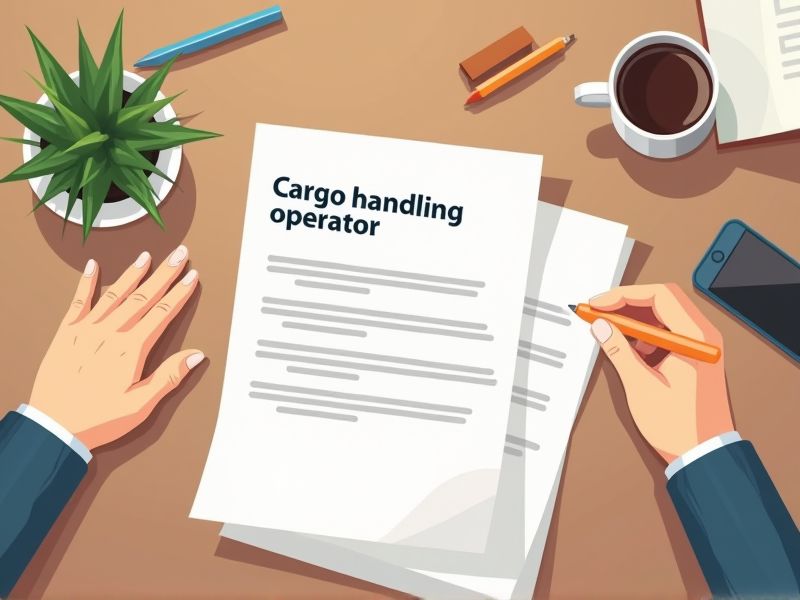
Cargo handling operators face numerous safety and regulatory challenges due to the complex nature of handling goods across various transportation modes. Certifications ensure that operators possess the necessary skills and knowledge to safely manage loading, unloading, and documentation processes, minimizing accidents and losses. Compliance with industry standards and legal requirements is crucial for maintaining operational efficiency and gaining client trust. Several key certifications may enhance your qualifications as a cargo handling operator.
OSHA Forklift Operator Certification
OSHA Forklift Operator Certification ensures that cargo handling operators have the necessary skills to safely operate forklifts, reducing the risk of workplace accidents. It enhances compliance with safety regulations, which helps prevent costly fines for businesses. Certification provides a structured training framework, which improves operational efficiency and reduces equipment damage. It also promotes a culture of safety, which boosts employee morale and trust in the workplace.
Hazardous Materials (HAZMAT) Handling Certification
Hazardous Materials (HAZMAT) Handling Certification ensures that cargo handling operators understand the specific risks associated with dangerous goods, reducing the likelihood of accidents. The certification process provides operators with the necessary skills to identify and manage hazardous materials, thus promoting safety in transport and storage environments. Regulatory compliance is achieved when operators hold HAZMAT Certification, which is mandated by both national and international shipping authorities. Proper certification minimizes potential environmental damage and financial liabilities that companies might face in the event of an incident involving hazardous materials.
Dangerous Goods Awareness Training
Dangerous Goods Awareness Training ensures cargo handling operators recognize and understand the hazards associated with transporting hazardous materials, minimizing risks of accidents. Proper training equips operators with the knowledge to comply with international safety regulations, preventing costly legal and operational repercussions. Being trained promotes proper handling techniques, which helps in avoiding damage or contamination of goods. This training enhances safety, protecting both personnel and the environment from potential harm caused by mishandling.
IATA Dangerous Goods Regulations Certification
Obtaining the IATA Dangerous Goods Regulations Certification ensures that cargo handling operators accurately identify and manage hazardous materials, reducing the risk of accidents. This certification equips operators with the necessary knowledge to comply with international safety standards, preventing costly penalties and legal liabilities. Proper certification facilitates smooth communication between airlines and cargo handlers, minimizing delays in the transport of dangerous goods. Organizations with certified personnel enhance their reputation, fostering trust among clients and regulatory bodies.
IMDG Code Certification
Cargo handling operators must understand the IMDG Code because it provides internationally recognized guidelines for the safe transport of dangerous goods by sea. An operator equipped with this certification helps prevent accidents and environmental hazards by ensuring compliance with safety regulations. The certification ensures that operators are knowledgeable about labeling, packaging, and documentation requirements, reducing the risk of fines and delays. Proper adherence to the IMDG Code strengthens global supply chain reliability by minimizing incidents related to hazardous materials.
Cargo Securement Training
Cargo securement training ensures operators understand the legal regulations and safety standards required for transporting goods, reducing the risk of accidents. Poorly secured cargo can lead to load shifts, causing vehicle instability and potential crashes. Training helps operators identify and use the correct equipment for different types of cargo, safeguarding the freight and the vehicle. Proper cargo securement minimizes financial losses due to damaged goods and enhances overall efficiency in logistics operations.
Manual Handling and Ergonomics Certification
Manual Handling and Ergonomics Certification is necessary for cargo handling operators due to its role in reducing workplace injuries by teaching proper lifting techniques. Training ensures operators understand how to manage loads safely, improving both efficiency and safety in cargo handling. According to data, ergonomic training can decrease musculoskeletal disorders, which are prevalent in industries involving heavy lifting. Certification helps maintain compliance with health and safety regulations, reducing potential liabilities for employers.
Fire Safety and Emergency Response Training
Cargo handling operators frequently work with hazardous materials, increasing the likelihood of fires and emergencies, which necessitates fire safety and emergency response training to mitigate the risks. Proper training equips operators to respond effectively, thus minimizing potential damage to goods and infrastructure. Effective emergency response reduces downtime and financial losses during incidents by ensuring swift and organized reactions. Training compliance enhances overall workplace safety, fostering a secure environment for operators and other personnel involved.
First Aid and CPR Certification
Cargo handling operators regularly deal with heavy machinery and equipment, increasing the risk of workplace accidents or injuries, thus necessitating First Aid and CPR certification to administer immediate care. Access to First Aid and CPR knowledge enables faster response during medical emergencies, reducing potential severity before professional medical help arrives. Certification demonstrates the operator's capability to maintain a safer work environment, potentially lowering the rate of workplace incidents. Regulations often require such qualifications to ensure compliance with health and safety standards in the industry.
Transportation Security Administration (TSA) Certification
TSA Certification is required for cargo handling operators to ensure compliance with federally-mandated security protocols. By obtaining this certification, operators are trained to identify and mitigate potential threats, safeguarding the transportation network. The certification process enhances the overall security of air cargo operations, minimizing risks of terrorism or illegal activities. Compliance with TSA standards also facilitates smooth and uninterrupted operations, as non-certified entities might face delays or restrictions.
Summary
When you obtain certifications as a cargo handling operator, you enhance your professional credibility and stand out among peers. This leads to increased job opportunities and potentially higher salaries, as employers seek qualified candidates. Certification also ensures you have up-to-date knowledge of safety protocols and industry standards, reducing the risk of operational errors. Ultimately, you contribute to improved efficiency and reliability in cargo operations.
